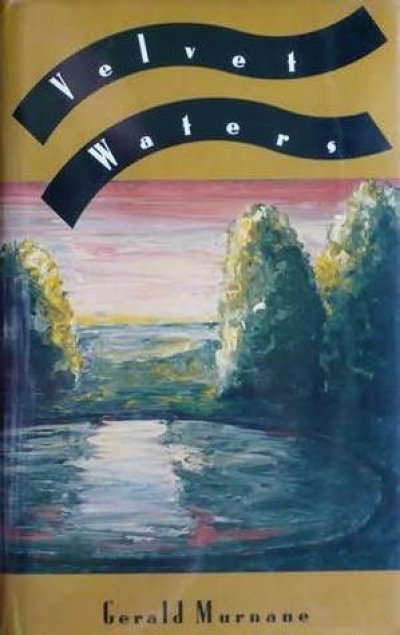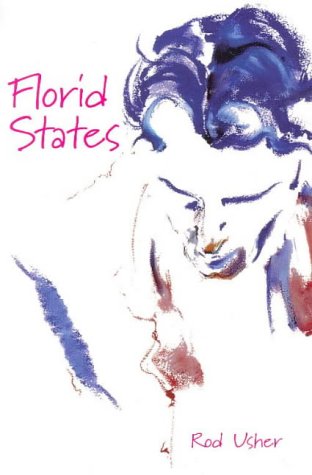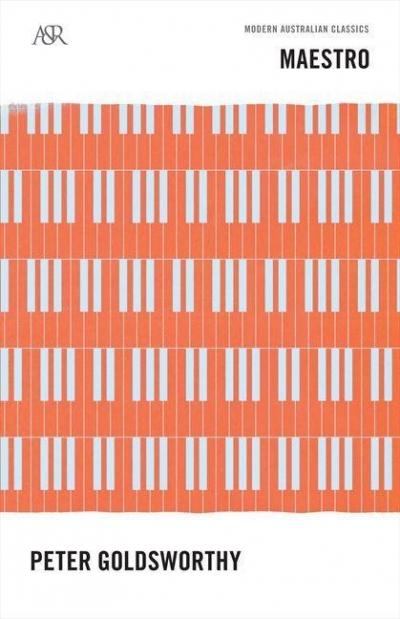Fiction
I have walked long and often with this writer man, travelled with him on trains, listened to him give exact references on the Melways map, noted him noting his whereabouts and those places about and abutting his whereabouts, and I am still uncertain why his work interests me so much, unless it be that the geography of the imagination is the first and the last landscape of grasslands to be explored and that the inland of an island such as ours will always be an ambiguous place which may display a real sea and a centre or mirages of either.
... (read more)As interviewer to the literary gentry in the Yacker series, Candida Baker could hardly be deemed a stranger to the agonies and ecstasies of the fiction writer’s craft. Her skill as interviewer and journalist has attracted attention and praise, and now everyone who’s been holding their breath to see how Candy Baker would manage her own first excursion into fiction can relax with a sigh of relief.
... (read more)Comedy and violence co-exist happily in this delightful first novel about a group of weekend bird watchers who themselves become the objects of scrutiny.
... (read more)Set mostly in north-western Nepal during the early 1970s, Blood on the Lotus is a fictionalised account of the events leading up and consequent to the CIA’s withdrawal of support for the Kamphas, the Tibetan guerrilla army fighting the occupying Chinese.
... (read more)I must acknowledge that in his second novel Rod Usher, author of the widely praised Man of Marbles, tells a good story. And he tells it competently, with some verve. The high points are nicely judged and well-spaced. The characters are drawn with firm lines. The setting – the countryside around the Condamine – is well integrated into a narrative which moves to a striking climax. The novel should enjoy some success and may well become quite popular.
... (read more)There’s a lot to be said for plain writing for writing in such a way that the reader is nudged along through nuance and observation to perception. Plain writing tends to make the reader feel as if they too are watching impassively what the writer sees. It’s a little like standing in shallow water, not noticing the tide coming in. Plain writing involves the reader; any shocks, or passions, come from within the story not from the use of highly coloured words or manipulative tricks.
There used to be a saying: Penny plain; twopence coloured. It came from the sale of cardboard prints in a London toyshop. The uncoloured prints were considered inferior, less exciting. They left too much to the imagination.
... (read more)McDonald’s latest novel, Rough Wallaby, carves out a fascinating position in contemporary literature: an intricately constructed, fast paced yam drawing its narrative from a contemporary Australian myth, the Fine Cotton race horse switch. The intriguing aspect of Wallaby is that it makes no pretence at anything but a great big yam. The yam in Australia is in a position of disgrace, not among readers, but in the academic-critical club. The story is no longer literature, it seems. There have to be other surreptitious elements recognized and codified by the literary fraternity.
... (read more)Tom Keneally used to be a fashionable writer, but not anymore, at least not with the critics, though readers continue to read him. Critical concern today is with aesthetics rather than ethics, theory rather than practice. Towards Asmara is therefore not likely to get a great deal of serious attention. This is a pity because it raises some weighty issues, and the loss is the critics’!
... (read more)The current literary enterprise of this country is greatly indebted to Peter Goldsworthy. Yet his name is not one of those that trip off the reflex tongues of journalists, and not only journalists. He has only recently started to appear in the anthologies. He is granted all of two lines in Ken Gelder and Paul Salzman’s jerky traverse of our recent fiction. Yet his accomplishment in a diversity of genres is unique.
... (read more)‘When Australians run away, they always run to the coast.’ Robert Drewe has already debunked the myth of the bush as Australia’s heartland, and in The Bodysurfers pictured us living and loving on the very rim of the continent, precariously perched in salty, sweaty, and essentially temporary hedonistic bliss between the threat of the empty outback, the incendiary bush, and the menace of the ocean with its sharptoothed predators and secret stingers.
... (read more)









